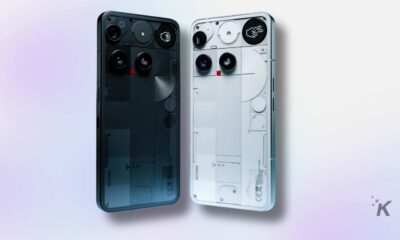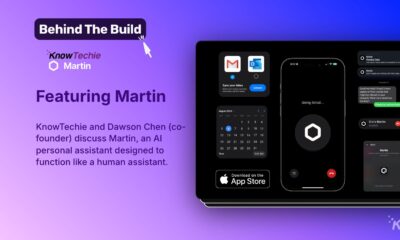News
Pimax announces high-end VR headset with swappable optics
Pimax unveils two groundbreaking VR headsets: one with a unique, swappable optical engine and the other focused on reducing cost and weight for users.

Just a heads up, if you buy something through our links, we may get a small share of the sale. It’s one of the ways we keep the lights on here. Click here for more.
PC gamers who want the best virtual reality (VR) experiences are in for a treat later this year. Pimax has announced two new VR headsets, one with a unique feature and one that lowers the cost of entry to VR.
The high-end Pimax Crystal Super VR headset has an interchangeable optics module, so users can pick the type of display they prefer between QLED and Micro-OLED.
That’s something no other virtual reality headset offers. Other high-end headsets like the Meta Quest Pro and Apple Vision Pro have locked-in optics with no options for swapping.
The Pimax Crystal Light is a cut-down version of the current Crystal headset, keeping the 2880p resolution screens but removing the standalone mode and a host of premium features. That’s okay, as it reduces the headset’s cost and weight.
Let’s dive into what’s coming later this year.
Pimax Crystal Super PC VR headset

The high-end Pimax Crystal Super has one feature that no VR headset has. That’s a swappable optical engine that can be either QLED or Micro-OLED, depending on which specs you prefer.
That’s made possible by a modular design which houses the optics and panel inside an easily removable section.

The QLED module has glass aspheric lenses with a massive 3840p resolution and 120Hz refresh rate. The Micro-OLED module uses space-saving pancake lenses but is limited to 4K resolution at 90Hz.
The downside of this change is that the standalone mode of the company’s earlier headsets is gone. That’s perhaps okay, as it makes the headset lighter and leans into Pimax’s strengths in optics.
The Pimax Crystal Super is available later this year, from $1,799 for the QLED module, $1,999 for the Micro-OLED module, and $2,399 for both optical modules.
The Pimax Crystal Super is a high-end virtual reality headset for PC users with swappable optics modules. That gives users the option of higher-refresh-rate QLED displays or higher color-accuracy Micro-OLED ones.
Pimax Crystal Light

Pimax’s Crystal Light isn’t a diet drink, although it definitely is a diet version of the existing Crystal VR headset. It drops the Snapdragon XR2 processor, battery, and storage that made standalone mode possible, and also drops the price.
You also lose eye-tracking, automatic IPD adjustment, interchangeable lenses, and the option for wireless connectivity, but Pimax says this enables a 30% weight reduction.
The display is the same 2880p per eye as the more expensive Crystal headset, with options with and without local dimming.
The Pimax Crystal Light VR headset has a $30 refundable deposit in pre-order stages. There are two versions of the VR headset, one without local dimming for $699, and one with local dimming for $899.
The Pimax Crystal Light is a more budget-friendly VR headset with the same high-resolution displays as the more expensive Crystal headset.
Things are looking good for VR gamers
Virtual reality is still a relatively niche technology, even decades after its introduction. Part of the reason is the expense of the VR headsets.
With Crystal Light, that cost has dropped substantially, albeit at the cost of premium features that make VR experiences better.
Pimax has said that the Crystal Light headsets will start shipping next month, with the Crystal Super headset scheduled for a Q3 2024 release.
Have any thoughts on this? Drop us a line below in the comments, or carry the discussion to our Twitter or Facebook.
Editors’ Recommendations:
- YouTube is aggressively cracking down on ad-blockers
- iOS 18 tipped to bring new features to Apple’s Notes app
- T-Mobile introduces soft data cap for Home internet users
- Leaked Google Pixel 8A renders reveal vibrant color options

































